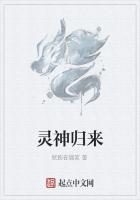if the Stettin council wished to forbid export they must do so before Shrove Tuesday; the Duke retained the right both of suspending the prohibition altogether and of allowing exceptions.(18*) In the archbishopric of Magdeburg we find, in the time of the Elector Albert, that sometimes the town requested the government, and sometimes the government requested the town, to forbid export, and that there was an attempt to arrive at joint action by joint deliberation; yet, as early as 1538, the archiepiscopal governor (Statthalter) after a bad harvest imposed a duty of a quarter of a gulden per wispel on the export of corn to last until next Midsummer's Day, so as to keep a sufficient supply in the country and yet "not altogether prevent the peasant from ****** a livelihood." Under the succeeding Brandenburg "administrators" of the archbishopric, the right of the government to prohibit export in times of scarcity was as undoubted as in most of tHeir other territories.(19*)In Brandenburg the following rules were established during the course of tHe sixteenth century. In winter, from Martinmas (Nov. 11) to the Feast of the Purification (Feb. 2) no exportation should take place; Scheplitz connects this with the cessation of navigation during the winter, the universal custom in earlier times. Moreover, the peasants were never to export;only the squires (knights), the prelates, and the towns. In time of dearth the Elector had the right of embargo; but exceptions were allowed, as, for instance, to the towns of Seehausen, Werben, and Osterberg in the Old Mark (1536), both on account of their position on the frontier as well as because they had paid a considerable sum for the privilege; the Margrave John granted to the Frankfurters, in 1549, a similar privilege with regard to his appanage, the New Mark. The through transport of corn not produced in the Mark was allowed at any time upon the production of certificates of origin; and the Frankfurters were permitted at any time to export barley in the form of malt, even if it came from the country itself.(20*)While thus corn-exporting territories, like Pomerania, Magdeburg and Brandenburg, had constant recourse to prohibitions of export, though they were temporary only, these prohibitions rested on the idea of the territorial harmonising of production and consumption; and, when the needs were different, recourse was had without hesitation to an even more stringent and, in the last resort, permanent prohibition; as Pohlmann has described in the case of Florence,(21*) and Miaskowski for the Swiss cantons.(22*)The Netherlands prohibited the export not only of native horses, weapons, and war-material, but also of native corn, gold, silver, quicksilver, copper, and brass. In Brandenburg, also, hops were much more often compulsorily kept back than corn. Everywhere the prohibition of the export of leather and cattle played a great part. It was always the same conception that was involved: the resources of the land were thought of as a whole, which ought, first of all, to serve the needs of the country; they ought not to enrich a few individuals, but serve the home producer and the home consumer at a fair price. The regulations hitherto employed for this end by the towns were now transferred to the territories. As hitherto the town had laid an embargo, so now the territory: as the town had, at times, prohibited the import of foreign beer and wine and manufactured articles, so now the territory: as the town had hitherto maintained an elaborate system of differential tolls, so now the districts and territories set out upon a similar course. Berne threatened its Oberland (or subject territory) with an embargo on corn and salt, if it did not bring all its butter to Berne. As Nuremberg forced to its own market all the cattle that came within a circuit of ten miles;(23*) as Ulm did not allow a single head of cattle fed on the common pasture to leave its territory;(24*) so Florence secured for itself all the cattle sold from the subject districts without permitting their return, and exacted sureties from the owners of the great flocks driven to the Maremme that they would bring them back within the state boundaries a third larger. In the duchy of Milan, an official permission was necessary even for the transport of grain from place to place, so that the country might remain sure of its food.
同类推荐
热门推荐
绝世倾城:虐心王爷娇宠妃
她、在杀手榜上排行第一,她、是第一帮派的大宫主,一次杀害,她失去了所有。她穿越了,到了古代,那个以武为尊的世界,附身在了木府不起眼的三小姐身上,给姐妹们欺负,丫鬟都欺负她,住在最破的地方,不是宰相府吗?怎么这些人这么毒?她最不喜欢别人欺负她,一次在报复姐妹的庙里,她认识了妖孽而高冷的隐王,北燕最牛叉的强者。她只对他笑,对他好。他只对她温暖,对她爱。














